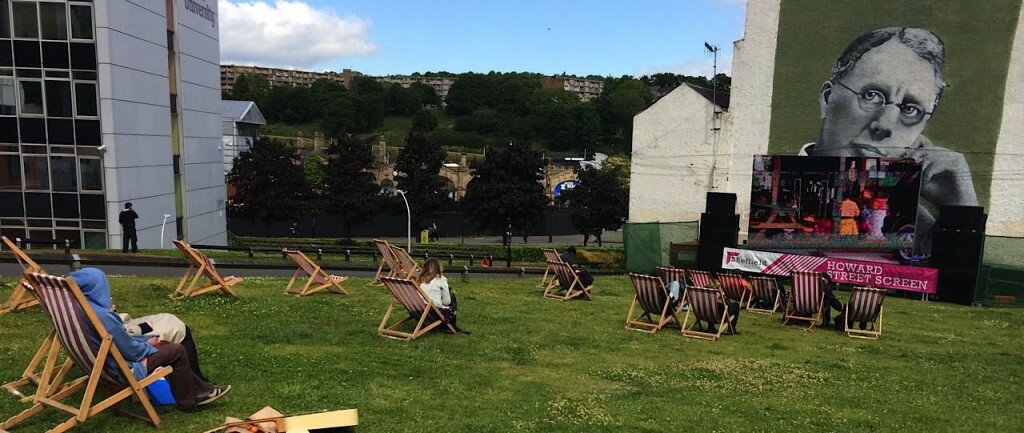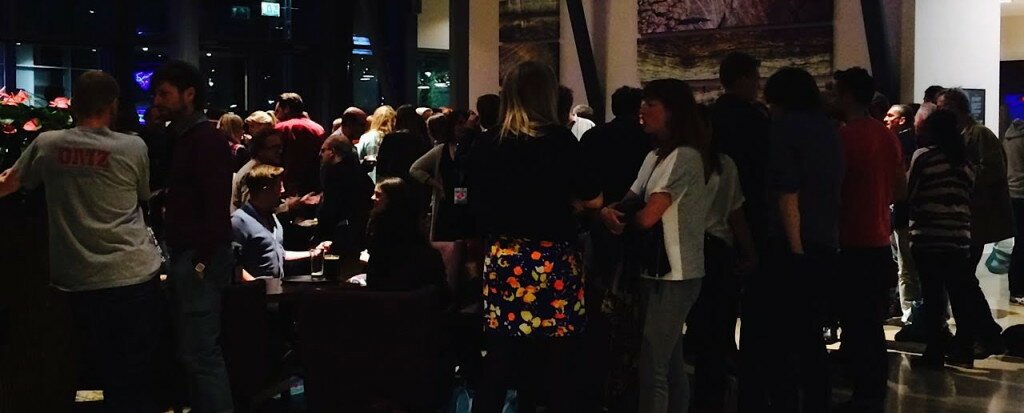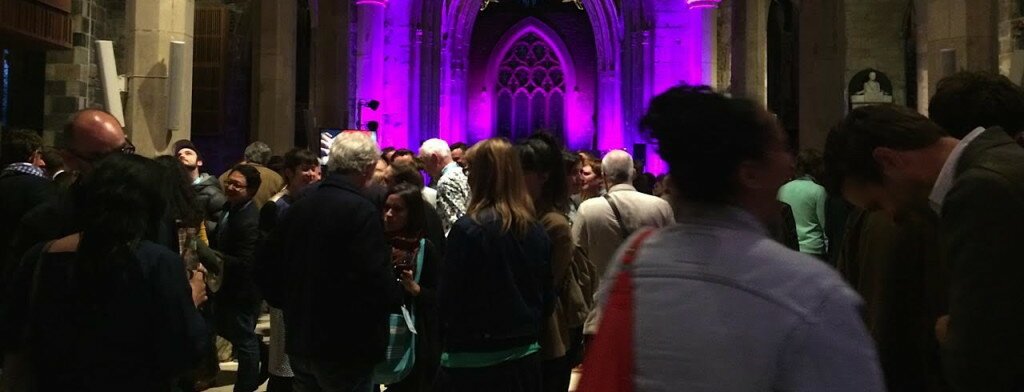Featured
A Beginner’s Guide to Sheffield Doc/Fest by Charlotte Fisher

Howard Street Screen
For anyone who has not been to Sheffield Doc/Fest before, it offers the chance to listen to commissioners from TV channels and film companies all over the world talking about what they are looking for from documentary makers and producers. It could also be the chance to pitch your latest project to some of them. And it’s an opportunity to watch the latest and best feature length documentary films.
The first time I went, in 2011, I was a TV news reporter and a total novice in the world of documentary making. The first thing that struck me (I do work in TV!) was how many men had beards – not something you saw much in news rooms at the time – men were clean shaven in the same way that women used hair straighteners and had bobs. Interestingly, the popularity of beards seems to have spread across the rest of the UK since then – just showing that Sheffield is at the forefront of all trend setting!
My second impression was much time film makers invested in their projects, many filming their subjects for months or even years (rather different to getting to know people in a news environment and being in and out of their homes and their lives in two hours and on air at 6pm). I was also surprised by how few of the film-makers I spoke to seemed to make a living from their documentaries – rather, people mortgaged their homes to fund their films.
I was there back in 2011 because – with a lot of pushing and prodding from my mentors and peers at Women in Film and Television– I had been persuaded to pitch a documentary idea (complete with a power point slide-show) in front of a hundred people in a church. I was warned that if you went over the time limit you would be cut off mid sentence. Even when reporting live you would usually get to finish your sentence! It was a steep learning curve. My pitch stood out in that it was light-hearted and quirky – the others were serious, moving and one brought tears to the eyes of the panel. I knew I was doomed. Unsurprisingly, I didn’t win, but I was glad I did it and one day I hope I will make that film (without mortgaging my home!).
This year I went to the festival as a journalist, going to seminars and watching films; getting an overview of the whole festival. But I was also taking an interest with my other hat on, as a freelance producer at an independent production company. One night I headed off to dinner with colleagues from Clover and PBS – and despite their jet lag it was a very lively evening. The night ended, as many nights end in Sheffield, in the bar at the Mercure Hotel. It’s very central and a good place to meet up with friends. As a lot of commissioners stay here, many people do hang out here hoping to “sell” their film or at least give their card to the relevant exec. But if you know you are going to constantly worry about talking to the right people or not be able to resist the urge to shove your proposal in between a commissioner’s face and her wine glass, it may be more relaxing to go elsewhere. The much quoted tale about a pitch being pushed under a lavatory door is probably apocryphal – but apparently not considered best practice! If you want to get to know more about the commissioners, then going to the sessions is the easiest way. Look at who is on the panel and whether they commission the kind of programmes you want to make, to help you target the best person to approach with your idea.

Late night networking at the Mercure Hotel
If you do want the full attention of a commissioner, it’s best to plan ahead and try to get in to the MeetMarket. Here you can present your project directly to an interested party – one to one. (The project can be at any stage of development or production – but not completed). You submit your project in the form of a one minute taster and the team at DocFest choose around 60 out of 600 to be taken to the Meetmarket. Commissioners then view those tasters and request meetings to discuss the films they are interested in. Those submitting films also say who they would like to meet but the Sheffield team plan the schedule. The strictly timed sessions are held in a closed venue, round bistro tables covered with red and white gingham cloths, with jugs of water, boiled sweets and coffee on tap. Each project is likely to have around 5 to 18 meetings with commissioners or interested parties over two days.
For example, one meeting I had outside the MeetMarket was with a commissioner who was not interested in that film after all, but liked a couple of other projects on our slate. The Market is a great place to make and build relationships – but you do have to be selected. If you are not chosen, there is also the Crossover Market for interactive projects and Sales Sunday, which allows people looking for funding through sales and distribution, to network and meet the relevant people.
The other place to perhaps corner a commissioner is after a panel session – but you need to be quick, determined, to the point and and maybe armed with a business card or brief proposal – not a 10 minute spiel. You won’t be alone in the queue and I don’t know what the hit rate is for commissions as a result. But it does seems less intrusive than grabbing someone who is getting on down to Queen at the aptly named Guilty Pleasures party. Yes, commissioners can and do dance.

The BBC Party at Sheffield Cathedral
Sheffield is a great place for networking as well as pitching – and the drinks parties hosted by the BBC, ITV and Channel 4 are good for that. The Ideas and Science Breakfast is another good event for mingling, with real live (media friendly!) scientists as well as filmmakers and the hosts, the Wellcome Trust, which can provide much needed funding for relevant projects, namely those with a biomedical theme.
If you want to pitch a project, get funding for your film or just find out what commissioners are likely to be looking for in the next 12 months, it’s definitely worth spending a few days (and nights) at Sheffield Doc/Fest.


Discussion
Comments are disallowed for this post.
Comments are closed.